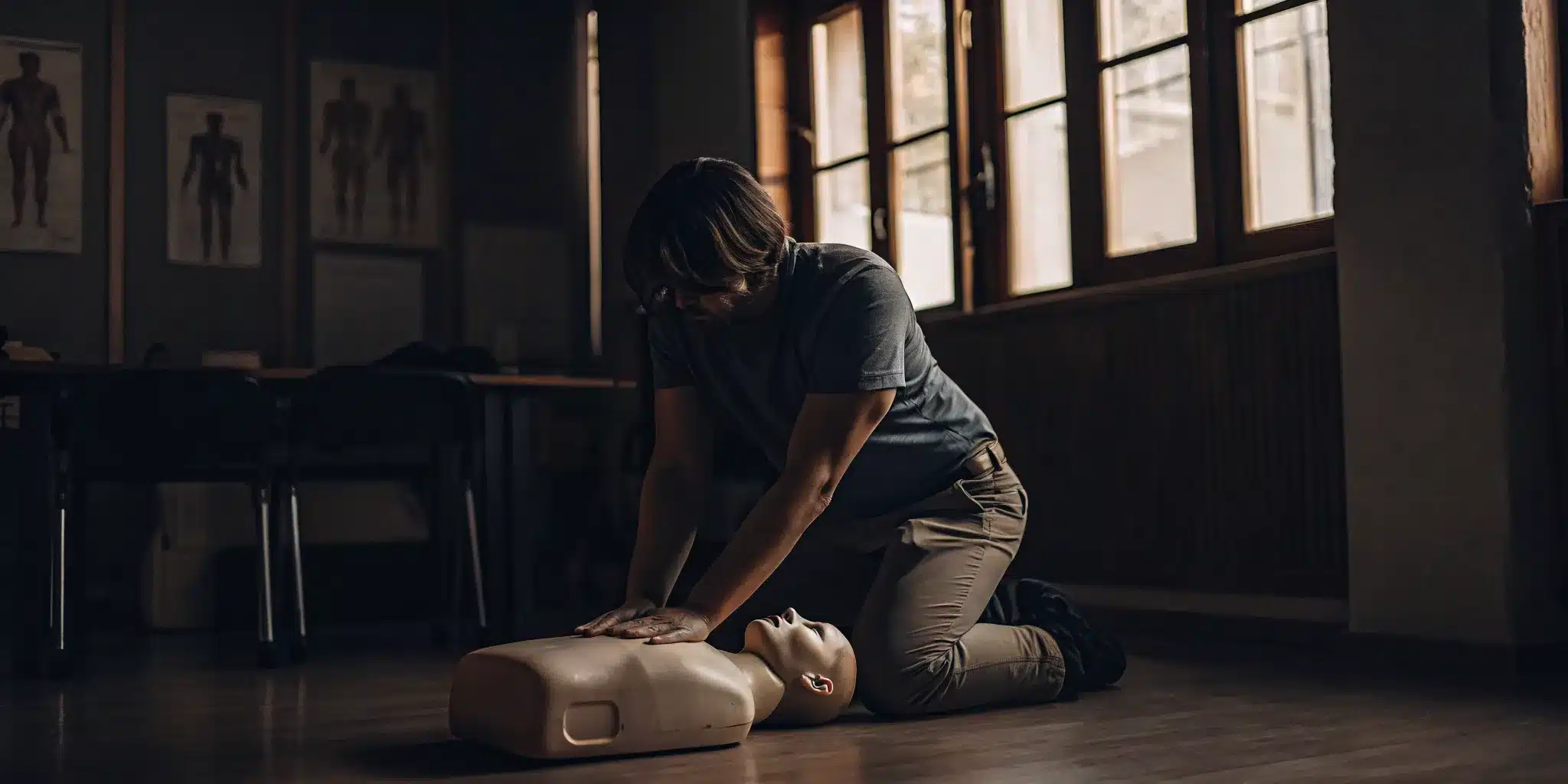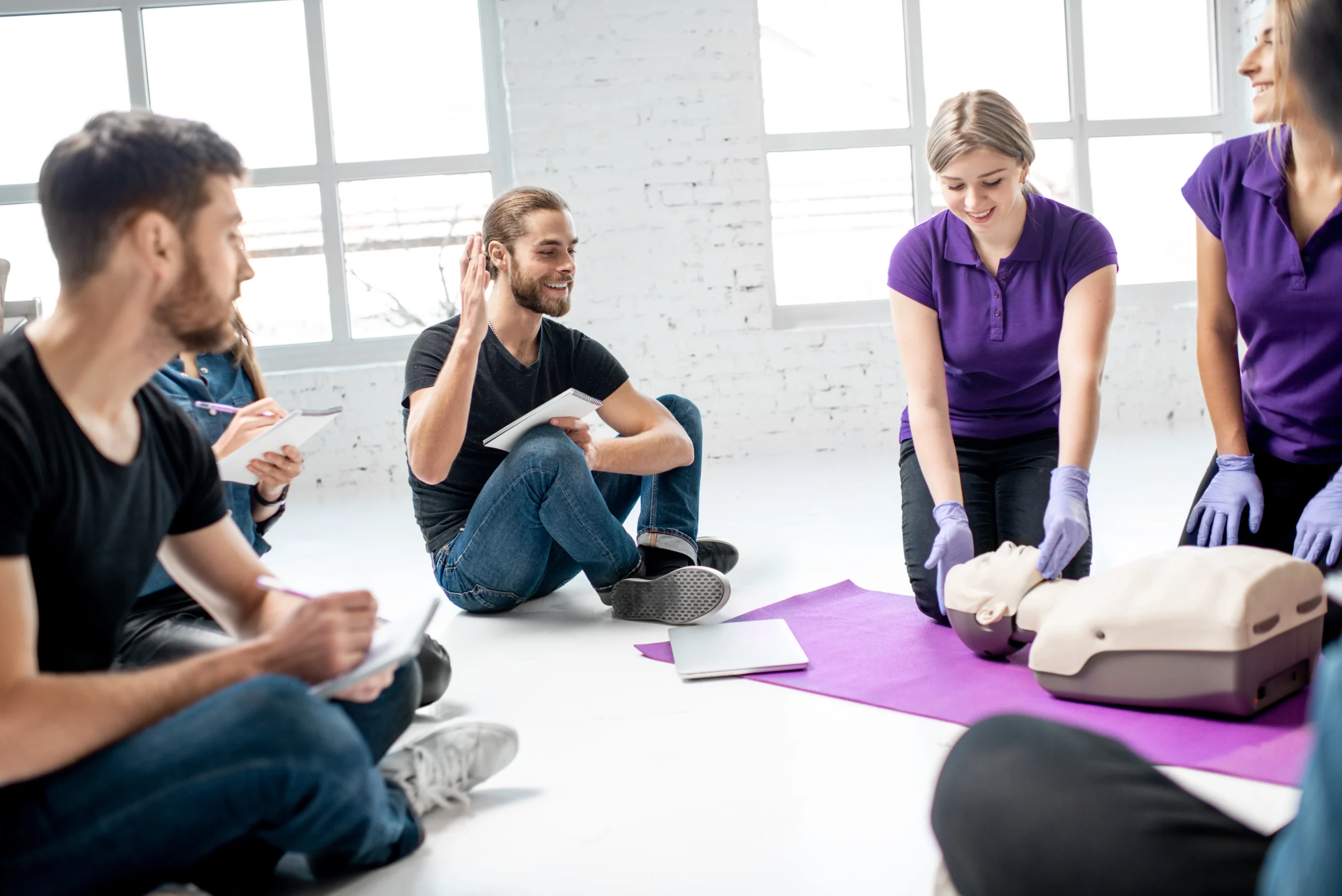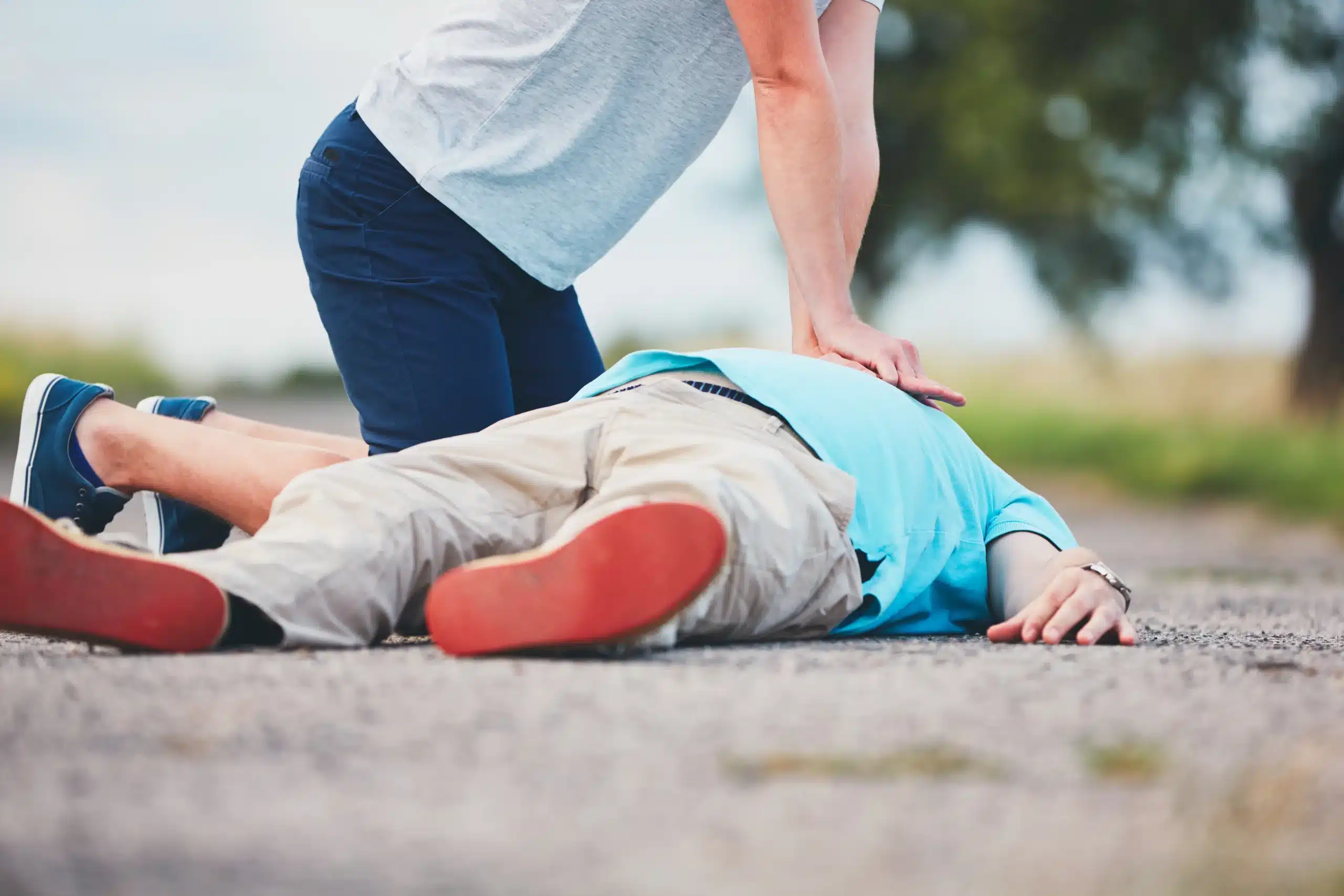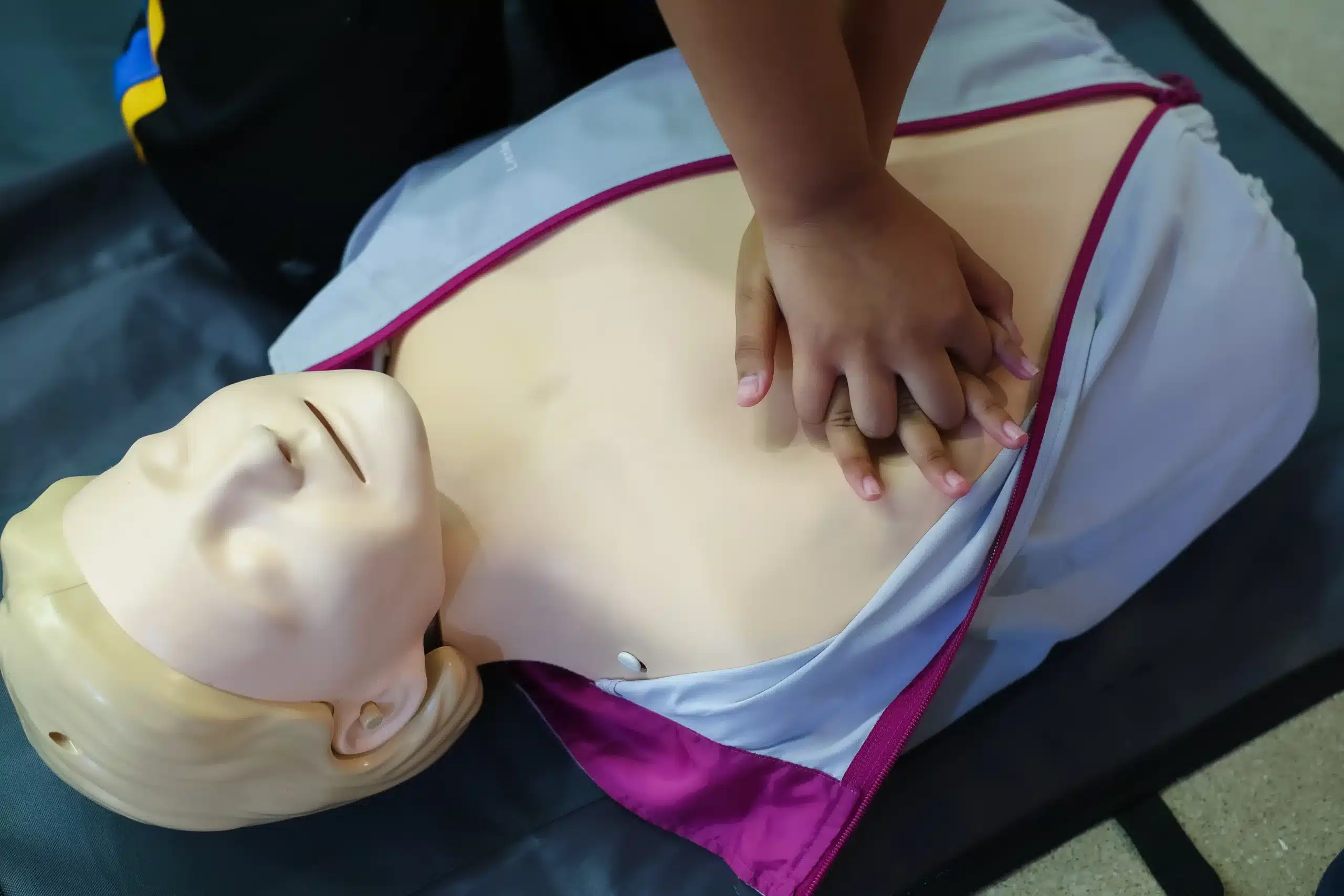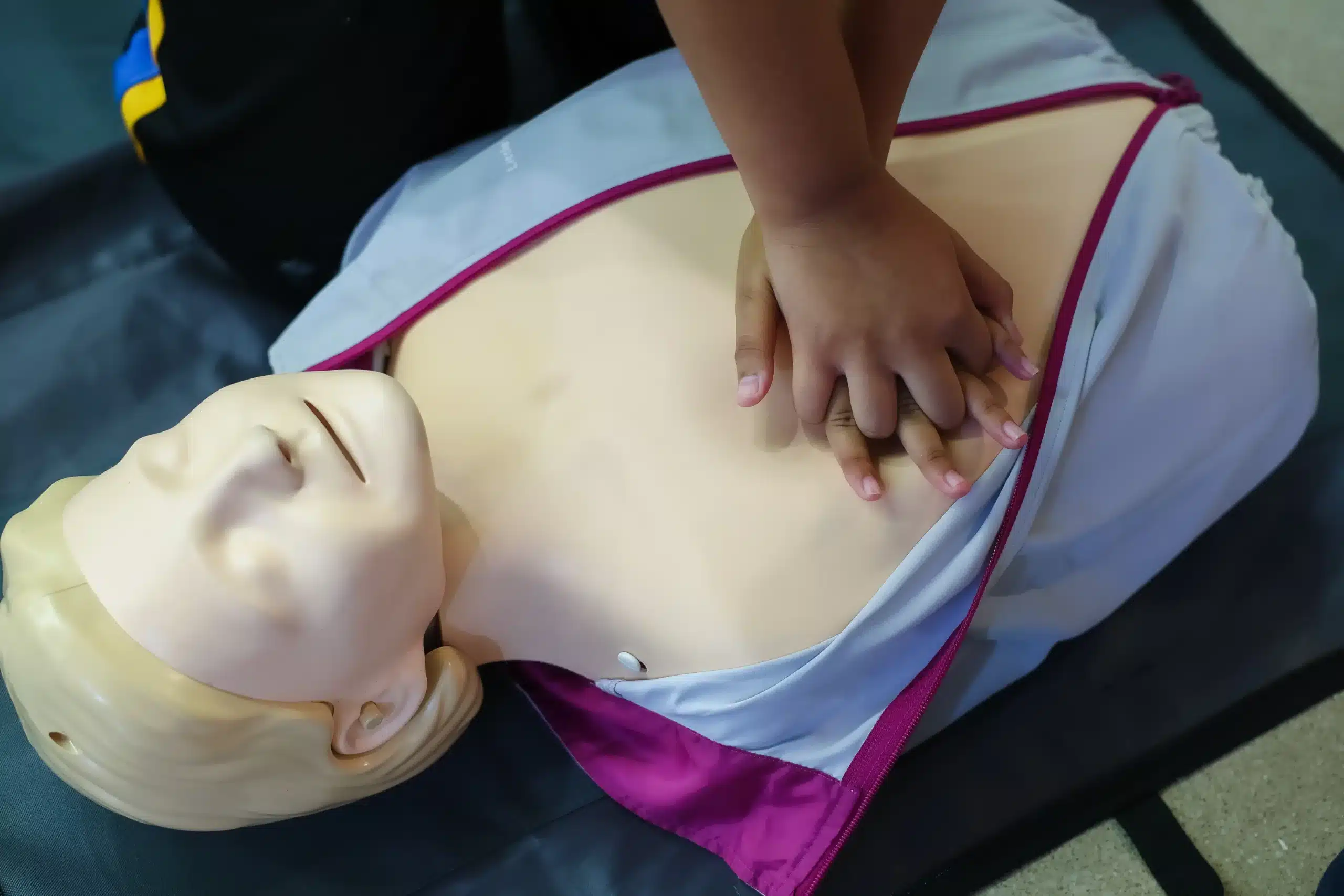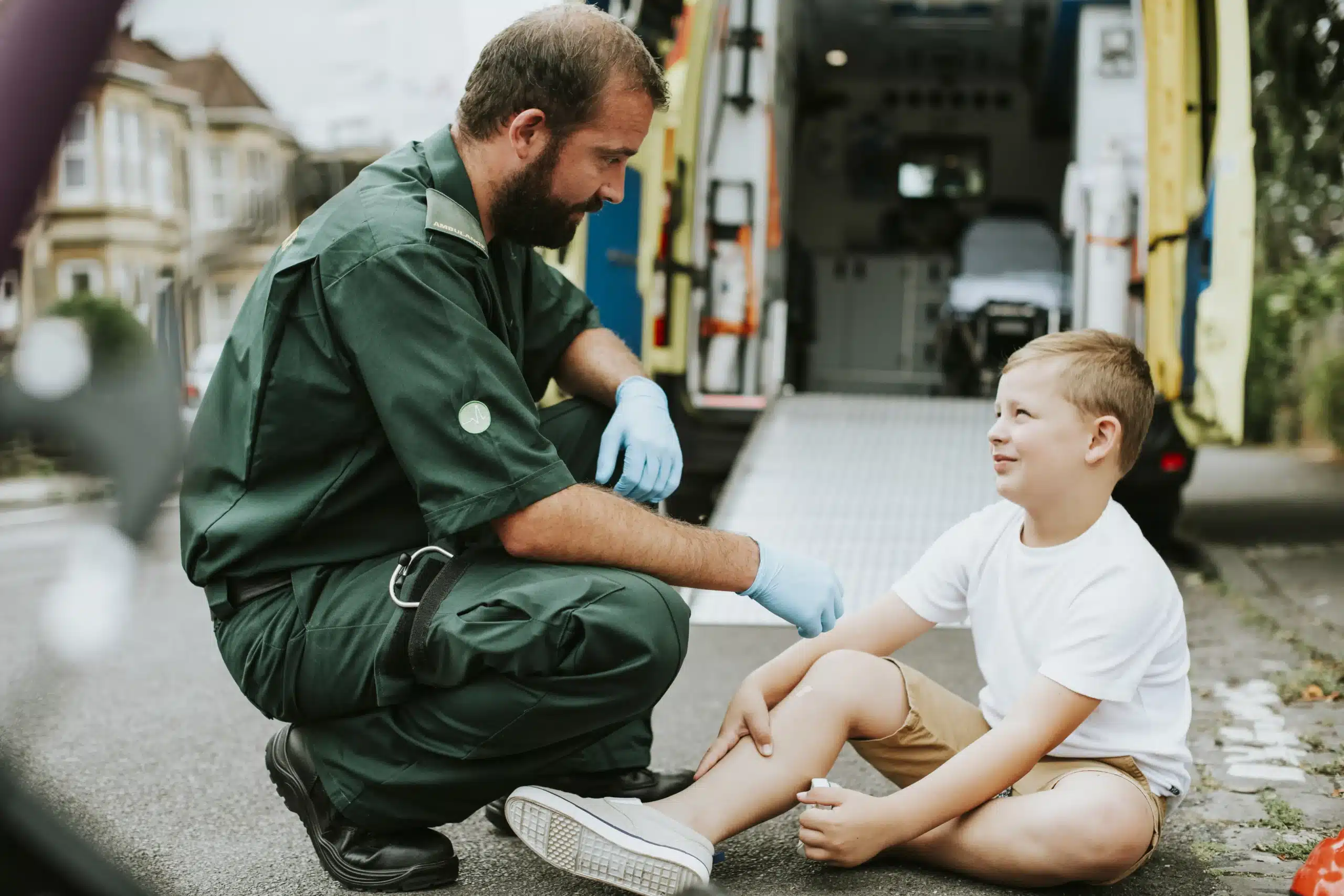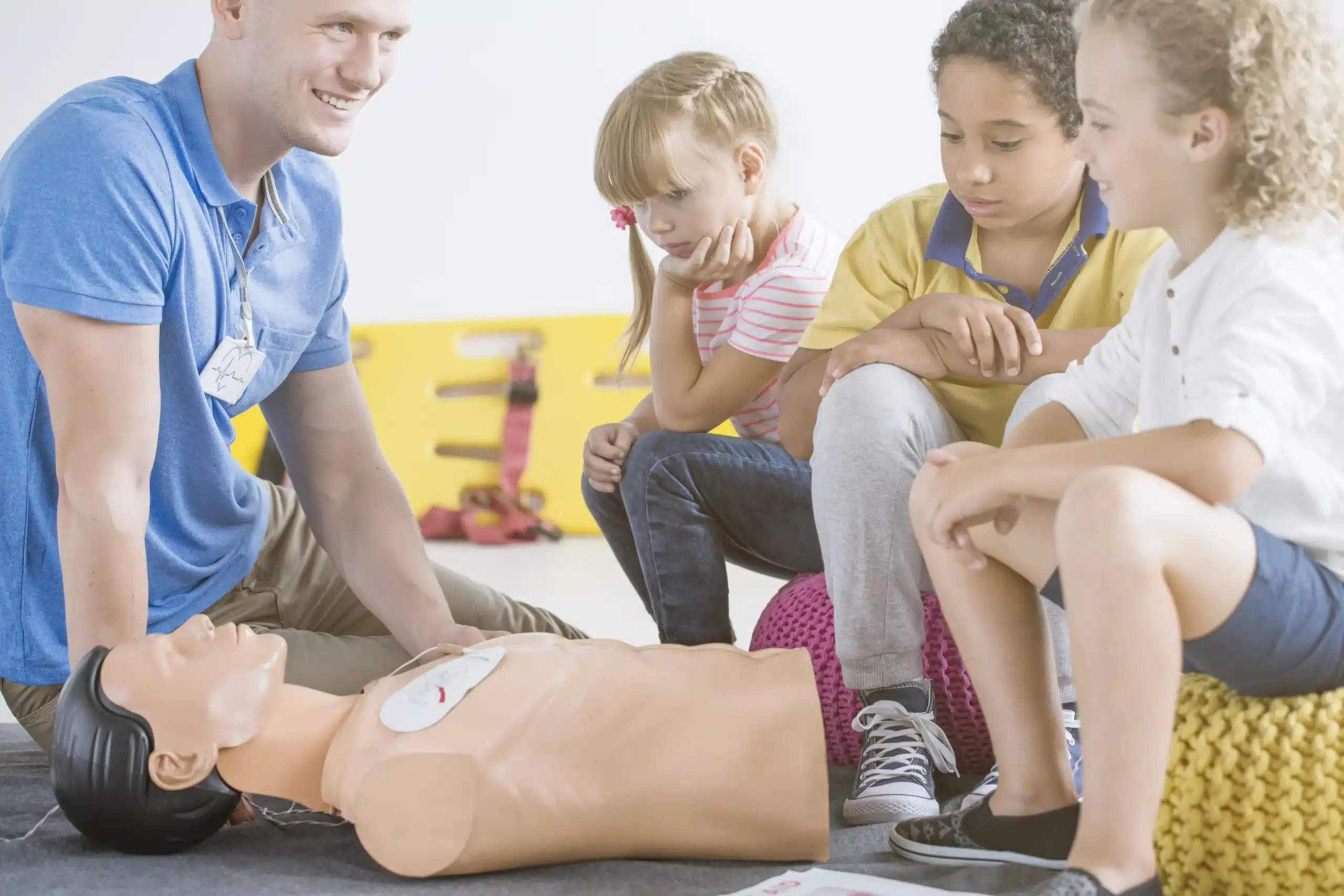Ready to become a life-saver? American Heart Association training Petaluma empowers you with the skills and confidence to respond to medical emergencies. Whether you’re a healthcare professional, a concerned parent, or simply someone who wants to be prepared, this article is your guide to AHA certification in Petaluma. We’ll explore the range of courses available through Safety Training Seminars, including BLS, ACLS, PALS, CPR, and First Aid. We’ll also discuss the benefits of choosing an AHA-certified training center and debunk some common myths about CPR training. Plus, we’ll provide practical tips on preparing for your course and maintaining your certification.
Key Takeaways
- AHA training equips you with life-saving skills: Whether you’re a healthcare professional or a concerned citizen, courses like BLS, ACLS, and PALS empower you to confidently respond to medical emergencies. Explore blended learning options for a flexible learning experience.
- Convenient AHA training is readily available: Several providers in Petaluma, including Safety Training Seminars, offer a range of courses and schedules to fit your needs. Check for group discounts for workplace training or community groups.
- Don’t let CPR myths hold you back: Anyone can learn CPR, and hands-only CPR is often effective. Acting quickly, even without formal training, is always better than hesitating in a medical emergency. Find a course and get certified – you might save a life.
What is American Heart Association Training in Petaluma?
American Heart Association (AHA) training in Petaluma gives you the chance to learn life-saving skills through a variety of certification courses. These courses cover everything from Basic Life Support (BLS) and Advanced Cardiovascular Life Support (ACLS) to Pediatric Advanced Life Support (PALS), CPR, and First Aid. Whether you’re a healthcare professional, a childcare provider, or simply someone who wants to be prepared for emergencies, there’s an AHA course designed for you. Providers like Safety Training Seminars offer convenient daily classes, making it easier to fit training into your schedule. Plus, you’ll receive an official AHA certification card valid for two years upon completion. This nationally recognized certification demonstrates your commitment to providing high-quality care in critical situations. The BLS course, for example, focuses on core life support skills like CPR in both pre-hospital and in-facility settings. AHA training isn’t just about acquiring skills; it’s about empowering individuals to confidently respond to emergencies and potentially save lives.
AHA Courses in Petaluma
We offer a variety of American Heart Association (AHA) courses at our Petaluma location, designed to meet the needs of healthcare providers, workplace responders, and community members. Whether you’re looking for initial certification or recertification, we’ve got you covered. Our courses blend online learning with hands-on skills sessions for a comprehensive training experience. Serving Petaluma, Rohnert Park, and Novato, we make high-quality AHA training accessible.
Basic Life Support (BLS)
Our BLS certification course covers the fundamentals of CPR for adults, children, and infants. You’ll also learn how to use an AED and provide relief for choking victims. This course is ideal for healthcare professionals, first responders, and anyone who wants to be prepared for a medical emergency. The BLS course includes online learning and an in-person skills session where you’ll practice with our certified instructors. We offer a low price guarantee on all our courses.
Advanced Cardiovascular Life Support (ACLS)
The ACLS course is designed for healthcare professionals who manage cardiopulmonary arrest or other cardiovascular emergencies. This advanced course builds upon the skills learned in BLS, covering topics such as airway management, rhythm recognition, and effective team dynamics. We offer both blended learning and traditional classroom options for ACLS certification.
Pediatric Advanced Life Support (PALS)
PALS certification focuses on the specialized approach required for pediatric emergencies. This course teaches healthcare providers how to recognize and respond to life-threatening situations in infants and children. PALS combines online learning with in-person skills practice and testing.
CPR and First Aid
In addition to our core AHA certifications, we also offer CPR and First Aid training for individuals and groups. These courses are perfect for workplace safety requirements, community groups, or anyone interested in gaining essential lifesaving skills. Learn how to respond to common injuries and emergencies with confidence. Contact us for more information about our group discounts.
AHA Training Location and Facilities
Safety Training Seminars’ Petaluma Center
Safety Training Seminars, a woman-owned American Heart Association Training Center in Petaluma, California, offers a range of certification courses. Conveniently located in Petaluma, we proudly serve Rohnert Park and Novato as well. Our focus is providing high-quality training in Basic Life Support (BLS), Advanced Cardiovascular Life Support (ACLS), Pediatric Advanced Life Support (PALS), CPR, and First Aid. We offer classes daily at various times to accommodate busy schedules.
Classroom and Equipment
Our Petaluma training center provides a comfortable and accessible learning environment. The classroom setting facilitates hands-on practice, essential for mastering CPR techniques. We prioritize this practical training to prepare you for real-life situations. CPR training involves physical movements that may cause hand, wrist, or arm strain. If you have any pre-existing conditions, please contact us with any questions or to reschedule if needed. We use advanced equipment, including voice-activated mannequins (VAM), for skills testing. These mannequins allow for effective practice, even without an instructor present, though phone support is readily available.
Costs and Registration
Getting certified in life-saving skills is an investment in yourself and your community. Here’s what you need to know about the costs and how to register for American Heart Association (AHA) training courses at Safety Training Seminars in Petaluma.
Certification Costs
AHA certification is $120, which covers your online learning materials, the in-person skills test, and your official AHA certification card. This comprehensive package ensures you’re fully prepared and officially recognized for your skills.
Group Discounts and Offers
If you’re looking to train a group, Safety Training Seminars offers discounts for businesses, community organizations, or even a group of friends. This can make training more affordable. They also offer convenient on-site classes, bringing the training directly to your location. Contact them for a customized quote and to discuss scheduling a private group session.
Register Online or In-Person
Signing up for a class is easy. Visit the Safety Training Seminars website to see the course schedule and register online. If you prefer to register in person, give them a call or visit their Petaluma training center.
Payment Options
Safety Training Seminars works to make life-saving training accessible with their low price guarantee in Sonoma County. They offer various payment options to simplify the process. Contact them to learn about accepted payment methods and any available financing.
Course Length and Certification
Knowing the time commitment and certification details for your American Heart Association (AHA) training course helps you plan and prepare effectively. Here’s a breakdown of what you can expect at Safety Training Seminars:
Time Commitment per Course
The time you’ll spend on your AHA training depends on the course you choose. Our BLS CPR course, for example, blends online learning with in-person skills practice. The online portion takes about one to two hours, while the hands-on skills session ranges from 60 minutes to two hours. This flexible format accommodates various learning styles and schedules. ACLS and PALS courses have different structures and time requirements, so check the specific course details on our website.
Certification Validity and Renewal
Your AHA certification, like your BLS Provider card, is valid for two years. This timeframe ensures your skills and knowledge remain current with the latest AHA guidelines. We offer streamlined renewal courses to keep you up to date, covering essential updates and refreshing your practical skills so you’re always prepared to respond to emergencies.
Maintain Your AHA Certification
Staying current with your AHA certification is easy. Simply recertify every two years through a renewal course. This process reinforces your skills and keeps you informed of any changes in CPR techniques or protocols. Maintaining your certification isn’t just about meeting requirements; it’s about ensuring you have the confidence and competence to provide effective assistance when it matters most. The AHA doesn’t have a minimum age for learning CPR, so it’s never too early to get certified!
Your AHA Training Experience
Getting your AHA certification is a rewarding experience. Here’s what you can expect from our courses:
Course Structure (Online & In-Person)
The American Heart Association (AHA) uses a blended learning approach, combining online coursework with in-person skills sessions. This flexible format lets you learn the material at your own speed online, then demonstrate your skills in a hands-on session at our Petaluma training center. Some courses, like BLS, require an in-person skills check, which is sold separately after you complete the online portion. This combination ensures you have both the knowledge and practical skills to respond effectively in an emergency.
Skills You’ll Learn
In our AHA Basic Life Support (BLS) course, you’ll gain the skills to perform CPR and other cardiovascular life support techniques. These skills are essential for healthcare providers and anyone who wants to be prepared for an emergency. From recognizing the signs of a cardiac arrest to providing high-quality chest compressions, our instructors will guide you through the necessary steps to confidently respond to life-threatening situations. These skills can make a real difference.
Provided Materials and Equipment
We provide all the equipment you’ll need during the in-person skills session. After successfully completing the course and skills check, you’ll receive an AHA BLS Provider Course Completion card, valid for two years. The AHA also offers a variety of resources, including the latest CPR and ECC Guidelines, to help you stay up-to-date with best practices.
Prepare for AHA Training
Getting ready for your AHA training is straightforward, but a little preparation goes a long way. Here’s what you need to know before you arrive:
Pre-Course Materials
Some AHA courses, like BLS, ACLS, and PALS, blend online learning with essential hands-on skills sessions. This means you’ll complete a portion of the course online through the AHA eLearning platform before scheduling your in-person skills session at our Petaluma training center. Check your specific course details to see if this applies to your chosen course. We’ll send you a reminder email with all the details after you register for a class.
What to Bring
For your in-person skills session, bring a photo ID and wear comfortable clothing suitable for practicing techniques. Upon successful completion of all course requirements, including the skills check-off, you’ll receive your official AHA Provider Course Completion card, valid for two years. Keep this card safe, as it’s your proof of certification.
Dress Code and Physical Requirements
AHA training involves hands-on practice of CPR techniques. This can include physical actions like chest compressions, which may put some strain on your hands, wrists, and arms. Wear comfortable clothing that allows for a full range of motion. If you have any pre-existing physical conditions that might affect your participation, please contact us before your class. We’re happy to discuss accommodations or rescheduling options.
Benefits of AHA Training
Getting your American Heart Association (AHA) certification, whether it’s BLS, ACLS, PALS, CPR, or First Aid, offers advantages that extend beyond the classroom. These benefits can positively impact your personal and professional life, and even empower you to make a difference in your community.
Improve Your Skills
AHA training provides you with the skills and confidence to act quickly and effectively during medical emergencies. You’ll learn essential techniques like CPR, how to use an AED, and how to recognize and respond to various life-threatening situations. These courses at Safety Training Seminars cover a range of scenarios, from a heart attack at home to a choking incident in a restaurant. This knowledge can help you protect your loved ones and provide assistance to anyone in need.
Advance Your Career
For many healthcare professionals, AHA certifications are a job requirement. Holding these certifications demonstrates your commitment to maintaining high standards of patient care and can open doors to new opportunities. Even outside the healthcare field, having these skills can make you a valuable asset. Businesses often seek employees trained in first aid and CPR to ensure a safer work environment.
Impact Your Community
Becoming AHA certified allows you to contribute to a safer and more prepared community. Knowing how to respond to medical emergencies can make a real difference in someone’s life. You become a link in the chain of survival, potentially bridging the gap until professional medical help arrives. Think of it as empowering yourself to be a positive force in Petaluma, Rohnert Park, and Novato. Learn more about our pricing on our website.
AHA Training Myths Debunked
It’s easy to get confused by inaccurate information about American Heart Association (AHA) training. Let’s clear up some common misconceptions so you can make informed decisions about your training.
“Only for Healthcare Professionals”
One of the biggest myths is that AHA training is only for doctors and nurses. Absolutely not true! While these certifications are essential for healthcare providers, AHA courses like BLS, ACLS, and PALS are valuable for anyone who wants to learn life-saving skills. Teachers, coaches, lifeguards, parents, and even babysitters can benefit from knowing how to respond to emergencies. In fact, having more people in a community trained in CPR can significantly improve survival rates from cardiac arrest. CPR and first aid skills empower you to help anyone, anywhere, anytime. Consider registering for a CPR class today.
“Online Certifications Aren’t Legitimate”
There’s some confusion around online certifications. While fully online-only CPR certifications are not AHA-compliant, blended learning courses that combine online instruction with in-person skills sessions are perfectly acceptable. These hybrid courses offer flexibility for busy schedules while still ensuring you receive the hands-on practice necessary for proper certification. Safety Training Seminars offers this convenient blended learning option so you can learn the material at your own pace and then demonstrate your skills in person.
“CPR Always Requires Mouth-to-Mouth”
Many people hesitate to perform CPR because they’re unsure about mouth-to-mouth resuscitation. The good news is that hands-only CPR is now the recommended approach for adults and teens experiencing sudden cardiac arrest. Continuous chest compressions are highly effective at circulating blood and oxygen, and you can learn this technique quickly. Of course, mouth-to-mouth is still part of the training for infants and children, and certain situations may warrant it for adults, but knowing that chest compressions alone can make a difference can give you the confidence to act in an emergency. Learn more about our CPR and first aid training.
“You Can Harm the Victim by Performing CPR”
It’s natural to worry about causing harm, but the truth is, doing nothing is far more dangerous than attempting CPR. Rib fractures can sometimes occur during CPR, but this is a small risk compared to the potential of saving a life. Remember, someone experiencing cardiac arrest is already clinically dead, and CPR is their only chance of survival. Our instructors at Safety Training Seminars emphasize proper technique to minimize the risk of injury while maximizing the effectiveness of your CPR efforts. We also offer a low price guarantee.
AHA Training Providers in Petaluma
Finding the right training center is an important step in getting your AHA certification. Here are a few providers offering AHA courses in Petaluma:
Safety Training Seminars
Safety Training Seminars is a woman-owned AHA Training Center offering BLS, ACLS, PALS, CPR, and First Aid courses in Petaluma. They also provide RQI training for healthcare professionals and pride themselves on their responsive customer support. Serving Petaluma, Rohnert Park, and Novato, they offer a low price guarantee and group discounts.
HealthQuest CPR
HealthQuest CPR is another AHA-authorized training center providing CPR, First Aid, and AED training in the North Bay. With nearly 50 years of experience, they have a long-standing presence in the community.
Bay Area CPR
Bay Area CPR offers AHA courses such as BLS, ACLS, PALS, and CPR in Petaluma. Their location is also convenient for those in nearby San Rafael and Santa Rosa.
Other Local AHA-Certified Training Centers
You can find other AHA-certified training centers in the area. VeriHealth, for example, offers various AHA courses, including BLS, ACLS, PALS, ITLS, S.T.A.B.L.E., NRP, and CPR classes in Petaluma and throughout Northern California. A quick online search for “AHA training centers near me” can uncover additional options.
Related Articles
- PALS Classes in Petaluma, CA – Petaluma CPR Classes
- AHA ACLS Classes in Petaluma, CA – Petaluma CPR Classes
- BLS CPR Classes in Petaluma, CA – Petaluma CPR Classes
- BLS, ACLS, PALS, CPR & First-aid Classes in Petaluma, CA
- RQI Classes in Petaluma – Petaluma CPR Classes
Frequently Asked Questions
What’s the difference between BLS, ACLS, and PALS?
BLS (Basic Life Support) teaches fundamental life-saving skills like CPR and AED use. ACLS (Advanced Cardiovascular Life Support) is geared towards healthcare professionals managing cardiovascular emergencies, building upon BLS skills. PALS (Pediatric Advanced Life Support) focuses on the specific needs of infants and children in emergencies. The best choice for you depends on your background and goals.
How long does AHA certification last, and how do I renew it?
AHA certifications are typically valid for two years. Renewal involves taking a recertification course to refresh your skills and knowledge and ensure you’re up-to-date with the latest guidelines. This helps maintain your competence and confidence in responding to emergencies.
Do I need to be a healthcare professional to take an AHA course?
Not at all! While some courses like ACLS and PALS are designed for healthcare providers, anyone can benefit from learning life-saving skills like CPR and first aid. Whether you’re a teacher, parent, or simply want to be prepared, there’s an AHA course for you.
What if I have physical limitations? Can I still participate in the training?
Absolutely. Contact the training center beforehand to discuss any physical limitations you may have. They can often offer modifications or accommodations to ensure you can fully participate and learn the techniques effectively. It’s important to be comfortable and safe during the training.
What does “blended learning” mean, and is the certification still valid?
Blended learning combines online coursework with in-person skills practice. You’ll learn the material online at your own pace and then demonstrate your skills during a hands-on session with an instructor. Yes, the certification you receive through blended learning is a valid AHA certification, just like the traditional classroom format.
This article was written for free by MEGA SEO.
